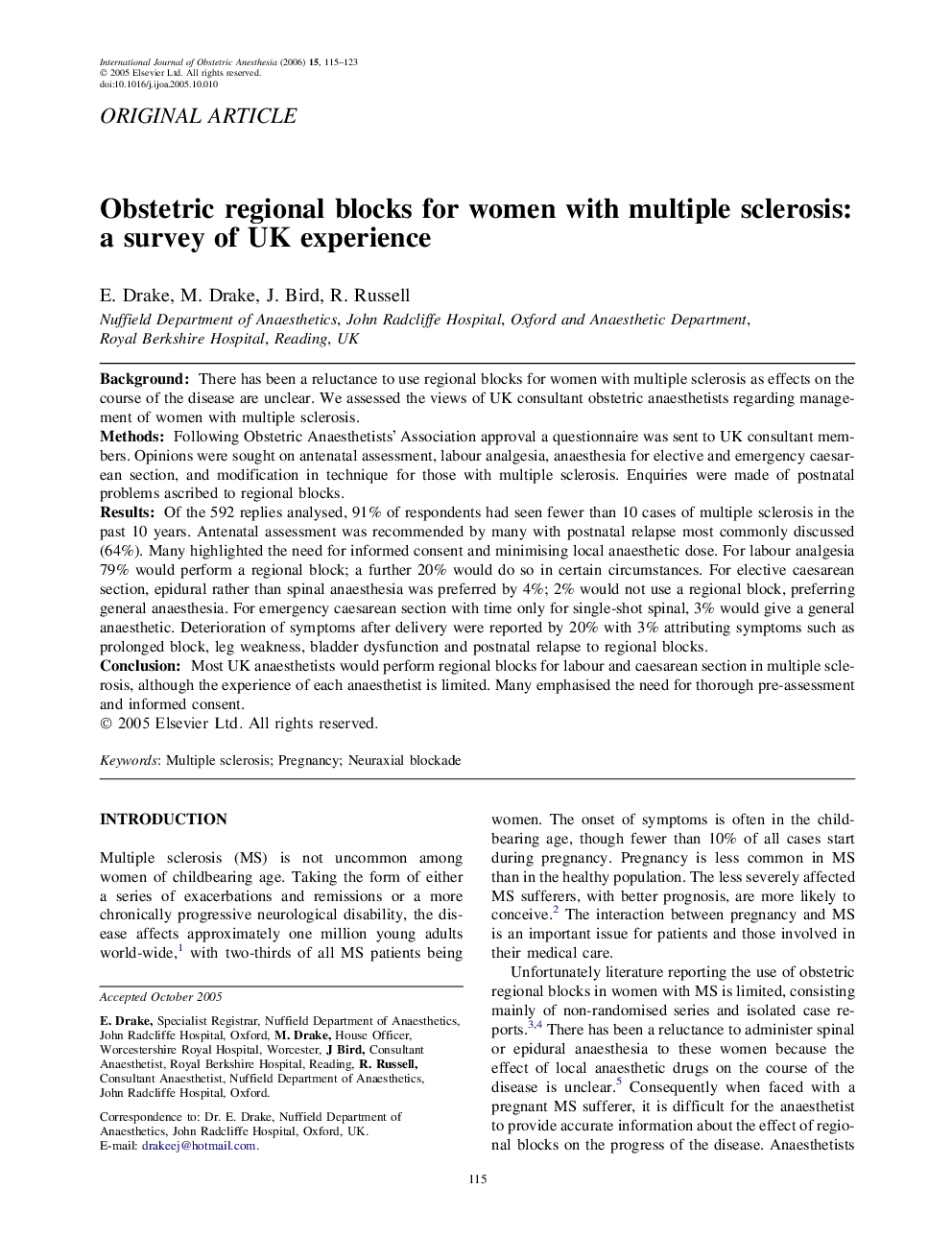| Article ID | Journal | Published Year | Pages | File Type |
|---|---|---|---|---|
| 2758662 | International Journal of Obstetric Anesthesia | 2006 | 9 Pages |
BackgroundThere has been a reluctance to use regional blocks for women with multiple sclerosis as effects on the course of the disease are unclear. We assessed the views of UK consultant obstetric anaesthetists regarding management of women with multiple sclerosis.MethodsFollowing Obstetric Anaesthetists’ Association approval a questionnaire was sent to UK consultant members. Opinions were sought on antenatal assessment, labour analgesia, anaesthesia for elective and emergency caesarean section, and modification in technique for those with multiple sclerosis. Enquiries were made of postnatal problems ascribed to regional blocks.ResultsOf the 592 replies analysed, 91% of respondents had seen fewer than 10 cases of multiple sclerosis in the past 10 years. Antenatal assessment was recommended by many with postnatal relapse most commonly discussed (64%). Many highlighted the need for informed consent and minimising local anaesthetic dose. For labour analgesia 79% would perform a regional block; a further 20% would do so in certain circumstances. For elective caesarean section, epidural rather than spinal anaesthesia was preferred by 4%; 2% would not use a regional block, preferring general anaesthesia. For emergency caesarean section with time only for single-shot spinal, 3% would give a general anaesthetic. Deterioration of symptoms after delivery were reported by 20% with 3% attributing symptoms such as prolonged block, leg weakness, bladder dysfunction and postnatal relapse to regional blocks.ConclusionMost UK anaesthetists would perform regional blocks for labour and caesarean section in multiple sclerosis, although the experience of each anaesthetist is limited. Many emphasised the need for thorough pre-assessment and informed consent.
